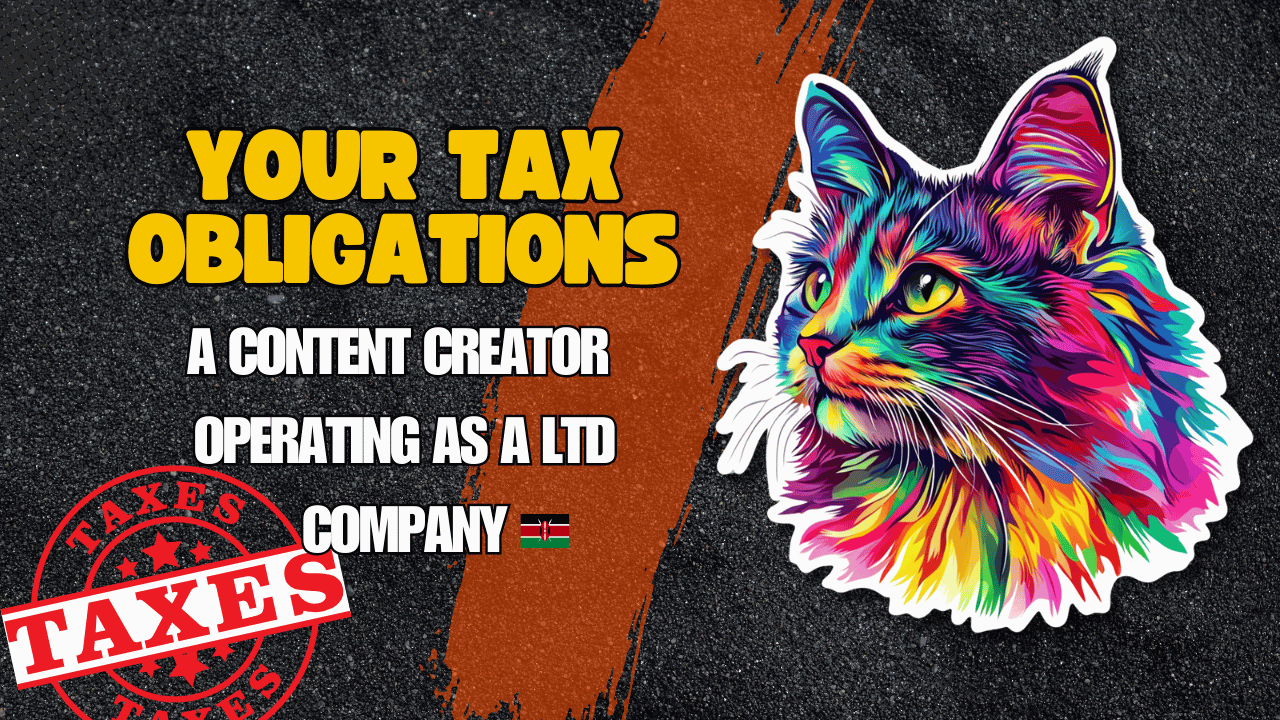To determine whether your company is liable for the Digital Services Tax (DST) or its replacement in Kenya for 2025, let’s clarify the current tax landscape and your eligibility based on the information available online. The Tax Laws (Amendment) Act 2024, effective December 2024, repealed the 1.5% DST and introduced the Significant Economic Presence (SEP) Tax for non-residents, alongside other taxes for resident companies. Here’s a breakdown:
Key Taxes for Digital Services in 2025
- Significant Economic Presence (SEP) Tax:
- Rate: 3% on gross turnover (previously proposed as 30% on 20% of deemed profits, but simplified to 3% per recent updates).
- Applicability: Applies to non-resident persons or companies earning income through digital marketplaces in Kenya (e.g., streaming, e-commerce platforms, or digital services).
- Exemptions:
- Non-residents with a Permanent Establishment (PE) in Kenya.
- Non-residents providing services to government-owned airlines (45%+ state ownership).
- Non-residents with annual Kenyan revenue below KES 5 million.
- Details: Taxable income is based on gross turnover, payable by the 20th of the following month via the iTax platform.
- Corporate Income Tax (CIT):
- Rate: 30% for resident companies.
- Applicability: Applies to your company’s worldwide income, including profits from digital services like premium memberships.
- Value Added Tax (VAT):
- Rate: 16%.
- Applicability: Applies to taxable digital services provided in Kenya, such as subscriptions, unless exempt (e.g., educational services). Resident companies with turnover above KES 5 million must register.
- Withholding Tax (WHT):
- Rate: 5% for residents on payments made through digital platforms.
- Applicability: If your company facilitates payments to other residents (e.g., content creators), you may need to withhold and remit this tax.
Are You Eligible for DST/SEP Tax?
- DST in 2025: The 1.5% DST, effective from January 2021, was repealed in December 2024 and no longer applies. Therefore, you are not liable for DST in 2025.
- SEP Tax Eligibility:
- As a resident company operating in Kenya, you are not subject to the SEP Tax, which targets non-residents without a Permanent Establishment.
- Your income is instead subject to CIT (30%) on profits and VAT (16%), assuming your turnover exceeds KES 5 million annually (mandatory VAT registration threshold).
- Other Considerations:
- If you facilitate payments to other residents via your platform (e.g., commissions), you may need to deduct 5% WHT and remit it to KRA.
- If your services are VAT-exempt (e.g., educational content), confirm with KRA to avoid charging VAT unnecessarily.
Practical Steps for your company
- Confirm Tax Obligations:
- Since you’re a resident company, focus on CIT and VAT compliance. File CIT returns annually by June 30 and VAT returns monthly by the 20th via iTax.
- Check if your digital products/services are standard-rated (16% VAT) or exempt. For example, customized educational services may be taxable, but general education is exempt under the VAT Act.
- eTIMS Compliance:
- Use KRA’s eTIMS system for invoicing (mandatory since January 2024 for most businesses) to support VAT and CIT deductions.
- Monitor Turnover:
- If your annual turnover is below KES 5 million, VAT registration is optional, but you’d still owe CIT on profits. If above, VAT is mandatory.
- Record Keeping:
- Maintain records of membership fees, expenses (e.g., hosting, marketing), and any payments to third parties to support deductions and WHT compliance.
- Seek Professional Advice:
- Consult a tax advisor or contact KRA (support@kra.go.ke or iTax portal) to confirm your service classification and exemptions, as digital tax rules are nuanced.
Example for Clarity
- Scenario: MIKE pays KES 1,000 for a one-month premium membership.
- CIT: You pay 30% on the profit (e.g., if your cost is KES 400, profit is KES 600, so CIT = KES 180).
- VAT: You charge 16% VAT (KES 160) on the fee, remitting it to KRA (unless exempt). MIKE pays KES 1,160 total.
- SEP Tax: Not applicable, as you’re a resident company.
- WHT: Only applies if you pay others (e.g., content creators) via your platform.
Conclusion
In 2025, your company is not eligible for the DST (repealed) or SEP Tax (for non-residents). Your primary tax obligations are CIT (30% on profits), VAT (16% on taxable services), and potentially WHT (5% on platform payments). To optimize compliance, use eTIMS, claim allowable deductions (e.g., software costs), and verify VAT status with KRA.
Sources: Information aligns with the Tax Laws (Amendment) Act 2024, Finance Act 2023, and KRA guidelines.
Disclaimer: This is general guidance. Consult a tax professional or KRA for tailored advice.

